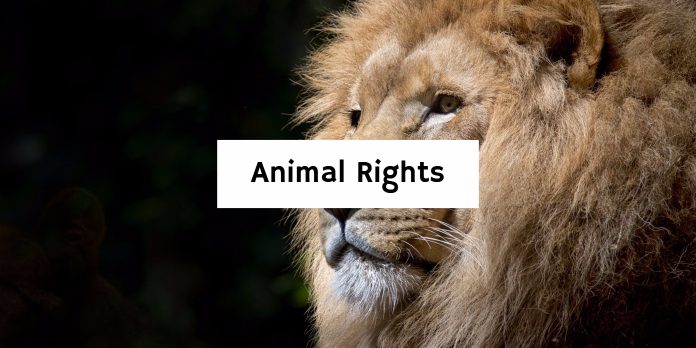There is a campaign underway in Vienna, Austria to declare Hiasl, a 26-year-old male chimpanzee, a “person,” with various accompanying legal rights. Hiasl’s cause is being championed by a group of animal rights activists. They are not insisting that he be given, for example, the right to vote, but they do want him protected by some basic rights to life–no torture, no enslavement, and the like. The Austrian animal shelter where Hiasl has lived for several decades has been closed, and his supporters want to make sure that he is not simply sent to join the homeless, or worse, to be killed.
I sympathize with Hiasl’s defenders. But I also worry about the larger trend we can see at work here. As an opponent of abortion-on-demand, I am concerned about a pattern in contemporary culture where we are downgrading human life, while at the same time upgrading the value of non-human animal life.
From a Christian perspective, not all created life is of equal value. People are more important than animals in God’s eyes. Human beings are the crowning achievement of creation. If that sounds like “species imperialism,” or a “hierarchical view of reality”–well, so be it. When we degrade human life–whether the life of the child not yet born or of the aging Alzheimer’s patient or of the young woman sold into sexual slavery–we violate the Creator’s purposes.
But we must also respect animal life. To be sure, we must oppose the tendency these days towards species-egalitarianism. Chimpanzees are not my siblings. They are not proper candidates for “human rights.” But neither are they devoid of a kind of created dignity. God created each species “after its own kind.” We need to think about what that means. In that regard, Hiasl’s defenders have a good point. Given the present legal situation, the right to life is restricted to humans. Hiasl could be eliminated without any legal penalities.
If someone kills Hiasl, I would be reluctant to label the killer a “murderer.” But I would not refrain from calling the person a sinner. We need a better theology of animal life–one that makes theological sense of the sins committed against the non-human creation.
2 Comments »
-
I have been an animal lover and environmentalist for most of my life. But I, too, am disturbed by the actions of some who profess to want ‘better conditions’ for animals, but whose efforts would likely result in just the opposite.
We have lost our focus as a society in large part because we no longer value human life as we once did. That results in irrational re-valuation of other species that deserve our care and concern.
Among other things, there are several efforts underway in California to overly restrict dog kennels who either breed or house dogs. Often the wording of the proposed legislation is contradictory. Now there is a proposal to allow “fee collectors” in place of shelters, humane societies or law enforcement to enter homes, yards, etc. without due cause or due process. There are laws in place, and perhaps there is greater need of inspections, etc. and enforcement of laws. But to make animals “equal” in rights with humans is wrong (imho).
Comment by Jean T — May 24, 2007 @ 12:22 pm
-
A professor of mine, Jonathan Chaplin, once talked about this topic in a political theory seminar. His way of addressing the question is quite unique and helpful.
If I remember correctly, rights, he suggests, are the companions of at least three other categories without which they become meaningless: responsibilities, competencies and jurisdictions.
In this sense, the chimp has no rights, or a very reduced conception of rights that differs fundamentally from human rights. By its nature as an animal, it doesn’t possess the rationality required for responsibility. I suppose that in some sense we can speak of a chimp being responsible for its young and perhaps its troop, but it is not responsible in the same way that a human is; it is instinctual. It is also possesses no competencies other than those which allow it to eat, reproduce etc.
All of this, of course, does not, in any way, mean that we as humans can ignore OUR responsibility to treat the animal with the respect it deserves as a particular type of creature. It only states that chimps don’t really possess rights.
Jonathan would do a better job of this than I though!
Comment by B.Djkema — May 29, 2007 @ 7:43 pm






























